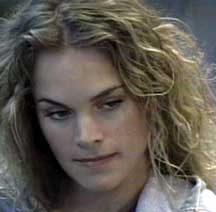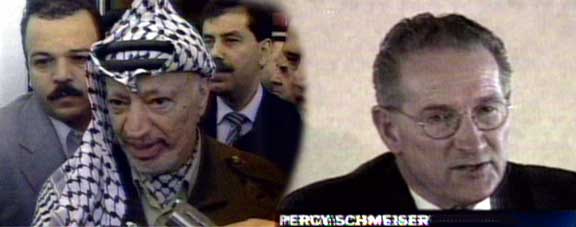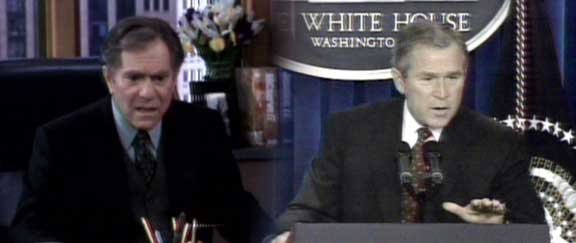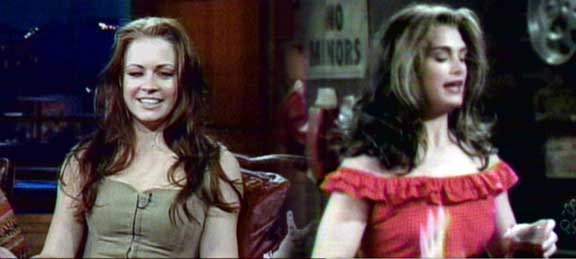|
TV and Reality |
 |
| FTLComm - Tisdale - March 30, 2001 |
| Marilyn was about fifteen when she began explaining the problem in her home. When she wasn't in school she spent much of her time looking after her young brother "Gordie" and with both of her parents working hard at the family business, much of the time, she had to do a lot of parenting. "Gordie" was exasperating her, she explained to me in an excited manner that "Gordie," who was about four at the time, was convinced that Yogi, Al Kabong, Bugs and all the rest were right there, inside that wooden box in the living room, and he could watch them through the window in the front of it. |
 Though we all consider ourselves more sophisticated and visually literate than Gordie back in 1960, it is sometimes worth considering just what is going on. These truly unusual television shows that have grown up in the last year that call themselves "reality" television, some are contests like the "Survivor" series while others make all viewers into peeping toms like "Lofters" (seen on the right)  . .
The lines between fictional entertainment and voyeurism has become completely blurred. So much so that even fiction itself has become more and more self absorbed than involved in telling us a story. Television series like "Nikita" (star Pita Wilson seen on left), NYPD, Family Law and Allie McBeal are experiential programming similar to the kind of thing that attracts viewers to soaps. Soaps which are virtually indistinguish -able from many of the reality TV series when we think of such things as "Blind Date" and "Temptation Island." We are probably to close in time to get a perspective on this unusual phenomena but in the future media scholars will look back on this era and attempt to make sense of it, I truly wish them well. |
| The television offered us all a window on the world and we have used it to inform and entertain ourselves now for almost half a century. During that time we have gone from using television to present song and dance to drama and artistic classics. Three strains of culture have gone along for the ride from the beginning; news, sports and weather. |
 News has been the most difficult for us to cope with because with television, the picture is the main carrier of information and that has meant that events do not take place unless there is a visual that will bring us to the experience. Realising this, people who want to make news have take advantage of this design problem. The development of CNN and then a whole range of clones, with both CBC and CTV, having their own versions, has meant that news is no longer a summation of what is happening, but is what visuals are available as things occur. The conflict in Vietnam was brought to households around the world every night in a news capsule format. The impact of those images determined the outcome of that conflict. Realising this, when it was decided to defend Kuwait and attack Iraq, one of the main issues for government was how to control and manage the continuous reporting process and there is no doubt that the actual course of that conflict was shaped by the news coverage, or the lack of news coverage. Bombing in Baghdad gets coverage US navy vessel downs an airliner gets a byline. |
 |
| Israel and the Arab people of Palestine have been at each other's throats off and
on since 1948, but were making progress toward a division of land and governmental
structure, until Palestinian leader Yasar Arafat decided things were not going his
way and with an excuse of right wing Israeli leader Sharon visiting a religious site,
he set in motion a media conflict that would see more than a thousand casualties,
an Israeli election and continued military conflict as he fights using television
as his primary weapon. Yesterday when Saskatchewan, Bruno farmer, Percy Schmeiser, lost his court battle with corporate giant Monsanto, Percy held a press conference. Television has become a more important forum than the courts. With a television series running about the conduct of the American presidency (The West Wing) and Americans already having had an actor as president and the present "W" Bush, little more than a foolish figurehead, even the raw power of American politics is a sort of soap opera with screwy elections. Below we see the banjo playing seasoned actor George Segal and the goofy Republican President George W. Bush and if it were that each of these men were left to make a decision, who would you trust to do the right thing? |
 |
 Let us discuss television sports and weather another time although it is hard to dismiss Football, Hockey and Basketball and not see the crazy irony and their close resemblance to Pro wrestling, which has contributed a Governor to one American state. There are serious efforts and serious journalist still working in television, but the owners still see it just as a form of entertainment and when that young face on the right gets a little older, she is not going to find herself on air reading the news. American networks have seen both CBC and CTV develop hard news shows using real journalist in the form of the Fifth Estate and W5 but they quickly striped their versions of these shows of the journalistic integrity and replaced it with shock and sex, both of which improve ratings so that Dateline, 60 minutes, Extra, Insider and all the rest of their fake news shows are revenue producing entertainment shows. News is incidental to ratings. |
 |
| Canadian talk show Open Mike is just a Northern version of Letterman,
Leno, the Late Late Show and Conan O'Brian these,
the last vestiges of variety entertainment, have become simple promotional programs
to promote televisions shows, movies and the number one commodity, pretty women.
The world of the sitcom is perhaps still the most honest form of simple entertainment on television. They essentially are sophisticated versions of skits and vaudeville shtick and they shamelessly flaunt talent and known personalities to attract viewers. Minute for minute they provide better entertainment than anything on television other than the commercials which pay for it. If you spend an evening watching television notice how often you laugh out loud, perhaps once or twice in a full evening, similarly, how often do you see something that makes you feel positive. If you check your emotions, you will discover the best of an evening's viewing will be those items where the most money is spent on production value and that is on those thirty second commercials. Stunning photography, amazing graphics, clever sound, imaginative writing and the occasional laugh. With commercials taking up more than seventeen minutes of every hour during prime time and far more on some channels, the viewer is overwhelmed with mountains of garbage, but occasionally great stuff is there, in the commercials |
 |
| The broadcasting of live parliament and legislature sessions ranks with Jerry Springer and Jenny Jones and that is not intentional, it is television that does that. It is there, hour upon endless hour, vast numbers of channels needing content to fill the void and there are two means to do it, use what looks like reality and rerun stuff made in the past fifty years. In either case it is a good reason to do what my father-in-law chose to do. Buy a computer and spend the time he would have watching television, on the Internet. |